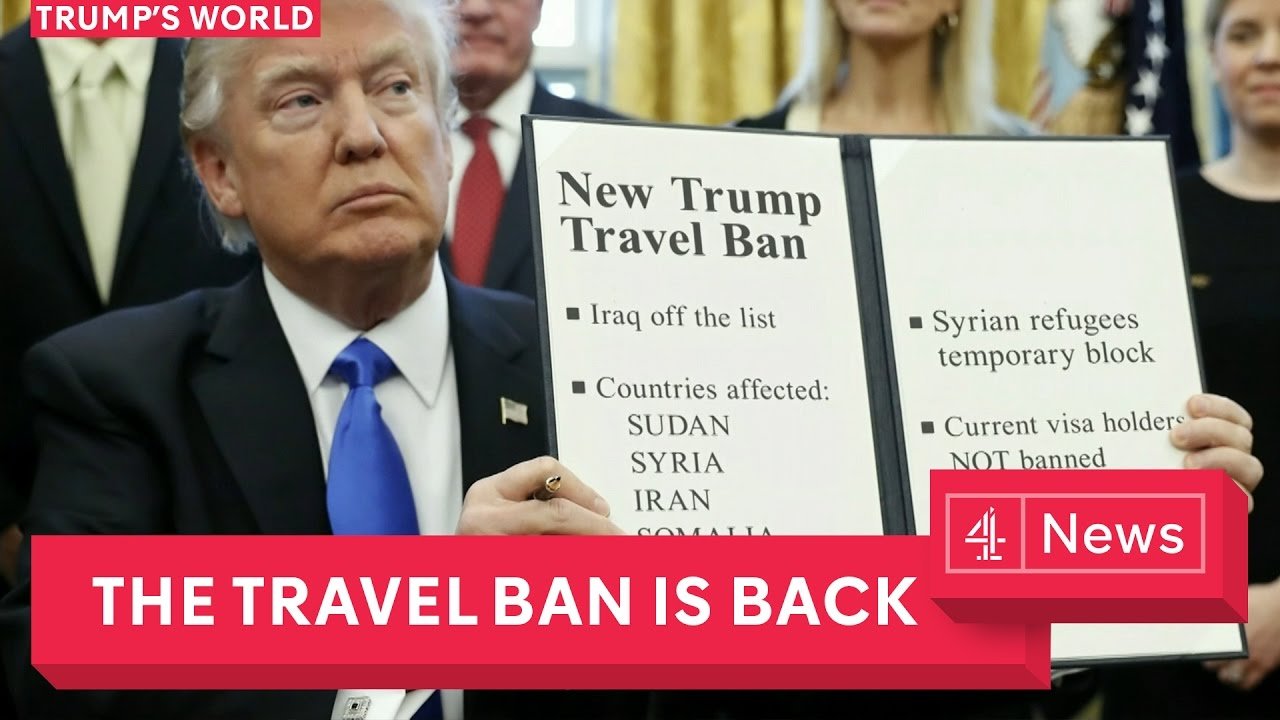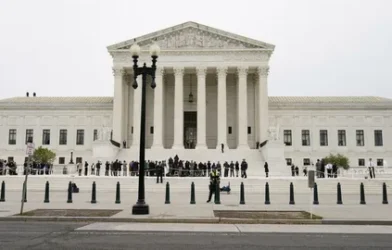The term “Trump Travel Ban” refers to a series of executive orders issued by former U.S. President Donald J. Trump beginning in January 2017, aimed at restricting entry into the United States from several predominantly Muslim-majority countries. Officially titled “Protecting the Nation from Foreign Terrorist Entry into the United States,” the ban was one of Trump’s most controversial and defining immigration policies—and its effects are still discussed today.
Origins of the Travel Ban
On January 27, 2017, just a week into his presidency, Donald Trump signed Executive Order 13769, which imposed a 90-day ban on nationals from seven Muslim-majority countries: Iran, Iraq, Libya, Somalia, Sudan, Syria, and Yemen. It also suspended the U.S. Refugee Admissions Program for 120 days and barred Syrian refugees indefinitely.
The order triggered widespread protests at airports across the United States, lawsuits from civil rights groups, and confusion among travelers and government officials. Critics called it a “Muslim Ban”, while the Trump administration insisted it was necessary for national security.
Legal Challenges and Revisions
Following intense backlash and judicial pushback, Donald Trump administration revised the policy multiple times. In March 2017, a second version removed Iraq from the list and softened some provisions. However, it too was challenged in court.
Ultimately, the third version of the travel ban—issued in September 2017—prevailed in the courts. This version included eight countries: Iran, Libya, Somalia, Syria, Yemen, North Korea, Venezuela, and Chad (later removed). In June 2018, the U.S. Supreme Court upheld the third version in a 5-4 decision, ruling that the president had broad authority to regulate immigration.
Criticism and Support
The Trump Travel Ban was sharply criticized by civil rights organizations, immigration advocates, and many lawmakers. Opponents argued it was rooted in religious discrimination, citing Trump’s campaign promise of a “total and complete shutdown of Muslims entering the United States.”
Supporters of the ban, including many conservative lawmakers, claimed it was essential for protecting national security and ensuring the vetting process for immigrants was thorough and effective. Trump himself argued that the policy was not about religion but about “keeping America safe.”
Impact on Individuals and Communities
The ban had immediate and long-lasting impacts. Families were separated, visa holders were stranded, and thousands of refugees saw their hopes of resettlement dashed. According to the Cato Institute, the chance of being killed in a terrorist attack committed by a foreign-born individual was extremely low, raising questions about the necessity and proportionality of the ban.
The policy disproportionately affected Muslim communities, contributing to feelings of marginalization and fear. Human rights groups noted that many of the affected countries had not been the source of any major terror attacks on U.S. soil in decades.
Biden Administration’s Reversal
On January 20, 2021, President Joe Biden signed an executive order revoking the Trump Travel Ban on his first day in office. He called it “a stain on our national conscience” and vowed to rebuild the nation’s reputation as a safe haven for immigrants and refugees.
The Biden administration has since worked to expedite visa processes for those previously impacted, although immigration backlogs and policy inertia have slowed progress.
The Ban’s Legacy Today
Though officially rescinded, the Trump Travel Ban remains a symbol of a broader debate over immigration, security, and national identity in the United States. It continues to be cited in political discourse and is a flashpoint issue in the 2024 and 2025 election cycles, especially among candidates proposing stricter immigration controls.
Many analysts consider it a defining moment in how executive power can be used—or misused—in shaping immigration policy. As America continues to grapple with the balance between security and inclusion, the legacy of the travel ban serves as a cautionary tale and a rallying cry, depending on whom you ask.













Comments are closed